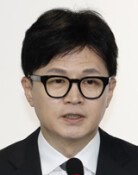Gov`t seeks to retroactively apply lower realty acquisition tax
Gov`t seeks to retroactively apply lower realty acquisition tax
Posted October. 23, 2013 06:53,
Steps are being taken to retroactively apply the permanent reduction of realty acquisition tax from August 28 this year. Originally, the government was to apply the reduced acquisition tax rate from January 1 next year, but it is moving to advance the date of the policys effectuation by considering that many people bought homes believing that the governments August 28 measure to ease burden of jeonse (rental home based on lump some key deposit) and monthly rental home prices, which also includes the policy to cut acquisition tax, would take effect immediately. In addition, the government judged that the real estate market should be urgently normalized to help revive the sluggish economy.
According to related government ministries and the National Assemblys Security and Public Administration Committee on Tuesday, the Security and Public Administration Ministry submitted late last month a revision bill for the Local Tax Act, which calls for adjusting the acquisition tax rate to 1 percent for homes costing 600 million won (566,000 U.S. dollars), 2 percent for homes costing 600 million won to 900 million won (849,000 dollars) and 3 percent for homes exceeding 900 million won, to ruling Saenuri Party lawmaker and the committees chairman Kim Tae-hwan, and asked him to submit it to the committee in the form of a lawmaker-initiated bill. However, Kim declined to submit the bill, saying, A considerable number of people believed that they would be able to immediately benefit from a lower acquisition tax due to the governments announcement, and asked the government to devise a way to retroactively apply the revision bill from August 28.
Given the situation that people trusted the government and bought homes soon after the announcement of the measure, it is desirable to advance the date of the acts effectuation, a ranking official at the Strategy and Finance Ministry said of the recent development. If the schedule for effectuation of a lower realty acquisition tax, which is a local tax, is advanced, local tax revenue could decline, but the central government will reimburse finances of local governments by devising relevant measures. Currently, the Strategy and Finance Ministry is considering providing the portion of the drop in tax revenue by adjusting the size of its expenditure for this year or mobilizing its reserve budget.
The housing industry judges that the number of people who bought homes soon after the August 28 announcement significantly increased from the earlier period. The number of housing transactions nationwide last month amounted to 56,733, up 42 percent year-on year (39,806 cases). The figure also represents a 22 percent gain from this years August.
If the policy to permanently lower the realty acquisition tax is retroactively applied, the buyer of a home costing 600 million won (566,000 dollars) in September will see the amount of his realty acquisition tax decline from 12 million won (2 percent tax rate) to 6 million won (1 percent tax rate), and can have the difference reimbursed.
Most homes traded recently are small- and medium-sized homes costing 600 million won or less, the size that people who buy homes for actual residential purpose tend to prefer, said Lee Nam-soo, head of the realty department at Shinhan Bank. Since demand for homes among would-be homebuyers is experiencing a setback due to uncertainty over whether a lower acquisition tax rate will be retroactively applied or not, if the governments bill is finalized, realty transactions are expected to increase.
Headline News
- N. Korea launches cyberattacks on S. Korea's defense companies
- Major university hospital professors consider a day off each week
- Italy suffers from fiscal deficits from ‘Super Bonus’ scheme
- Inter Milan secures 20th Serie A title, surpassing AC Milan
- Ruling and opposition prioritize spending amid tax revenue shortfalls







